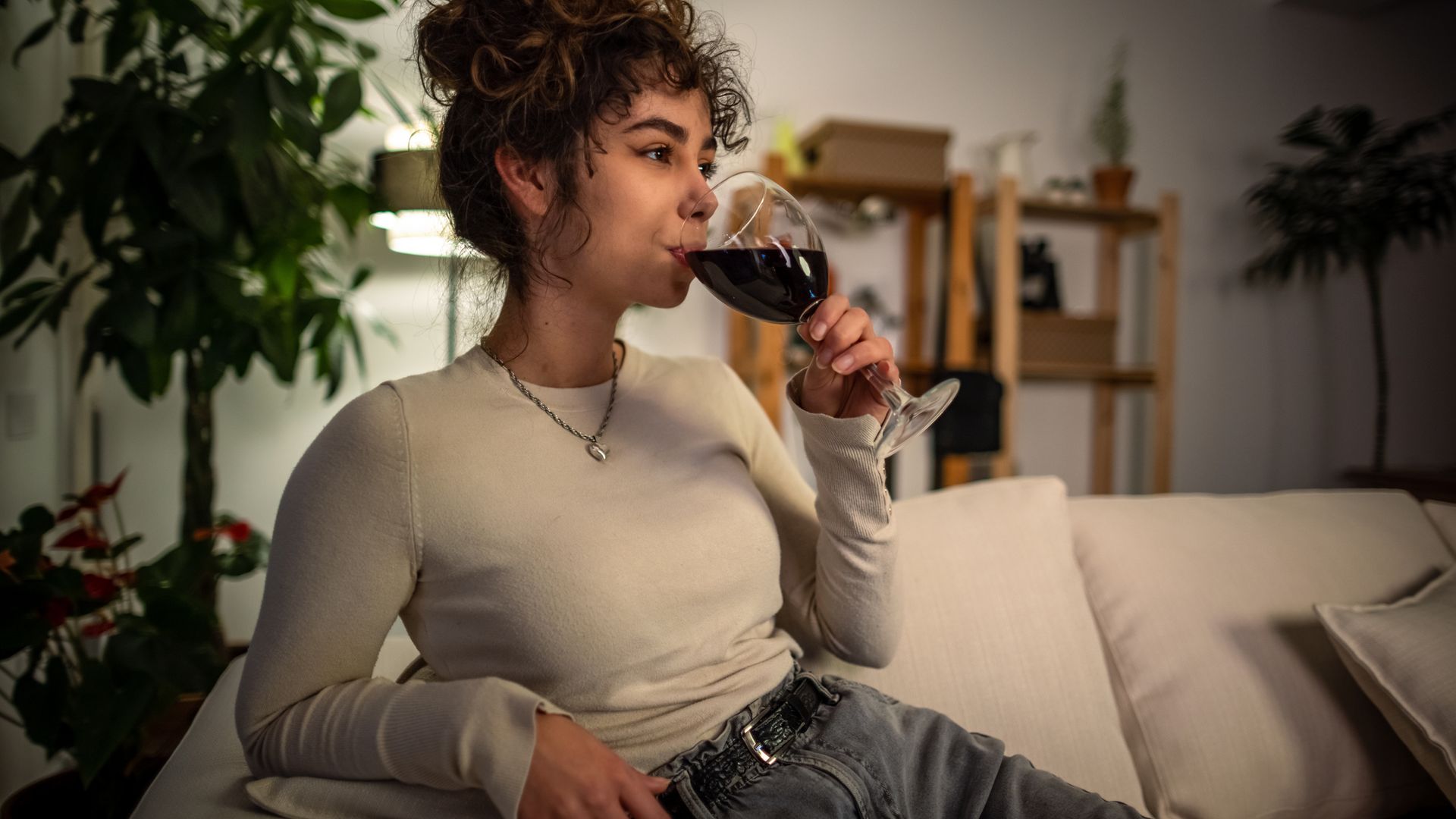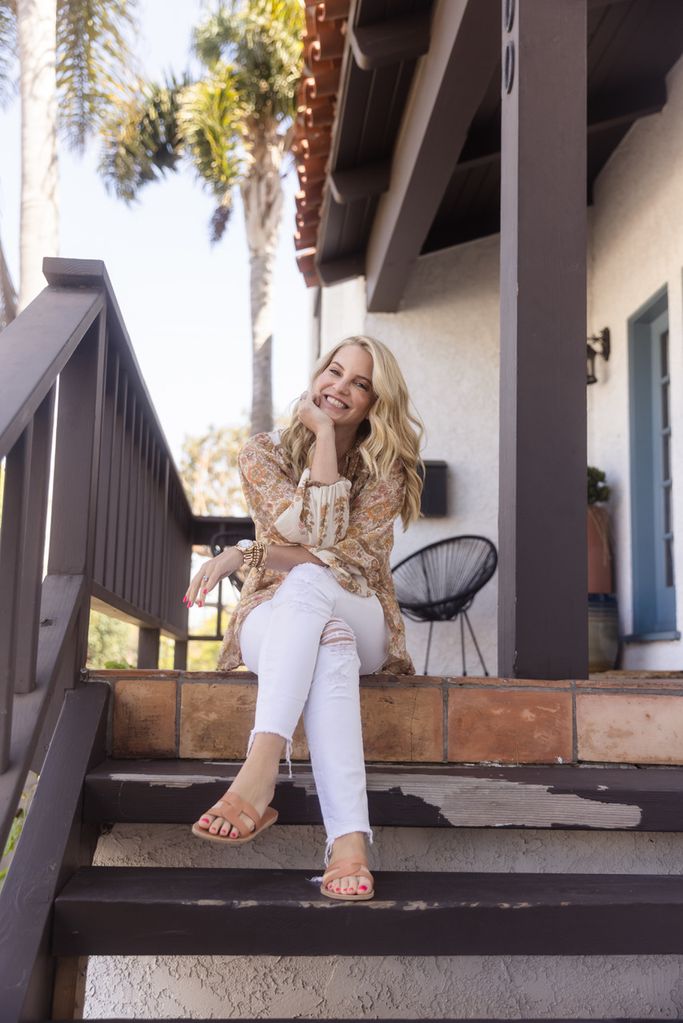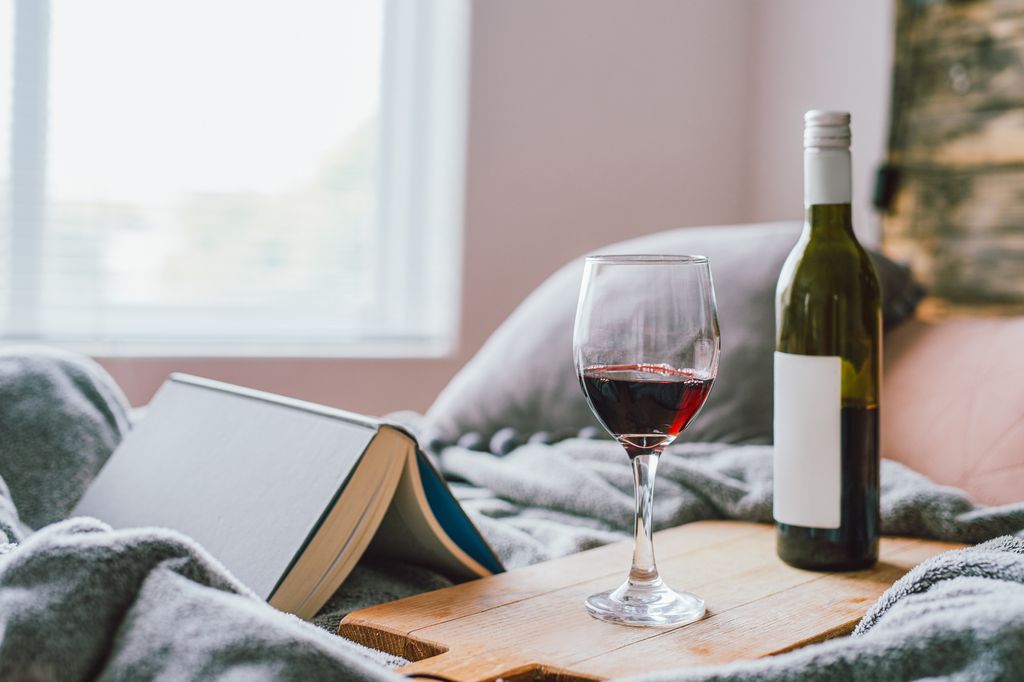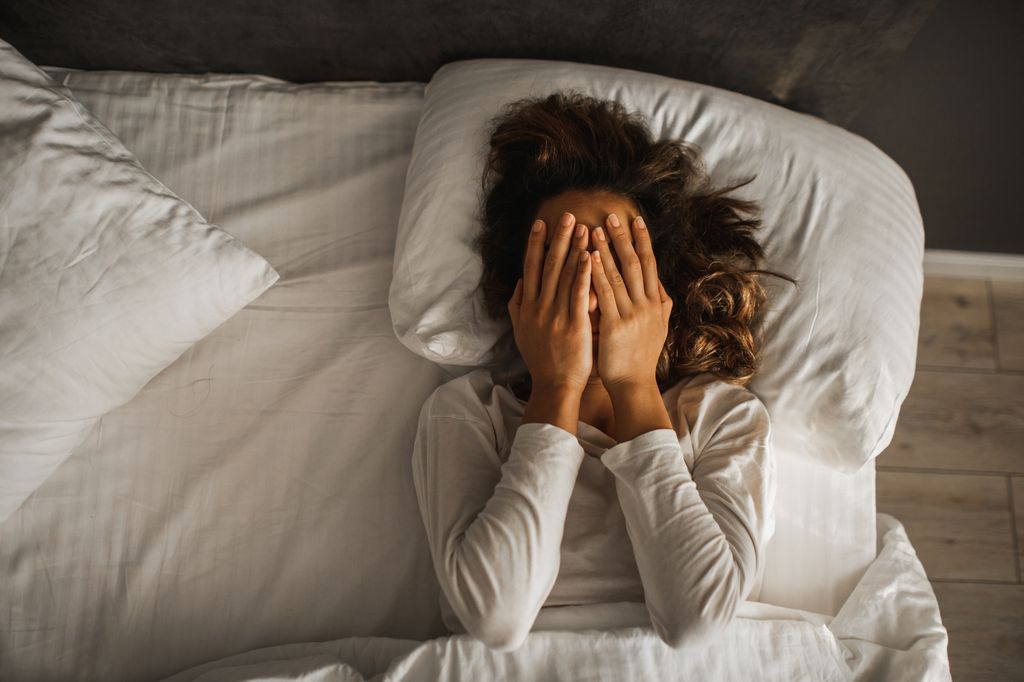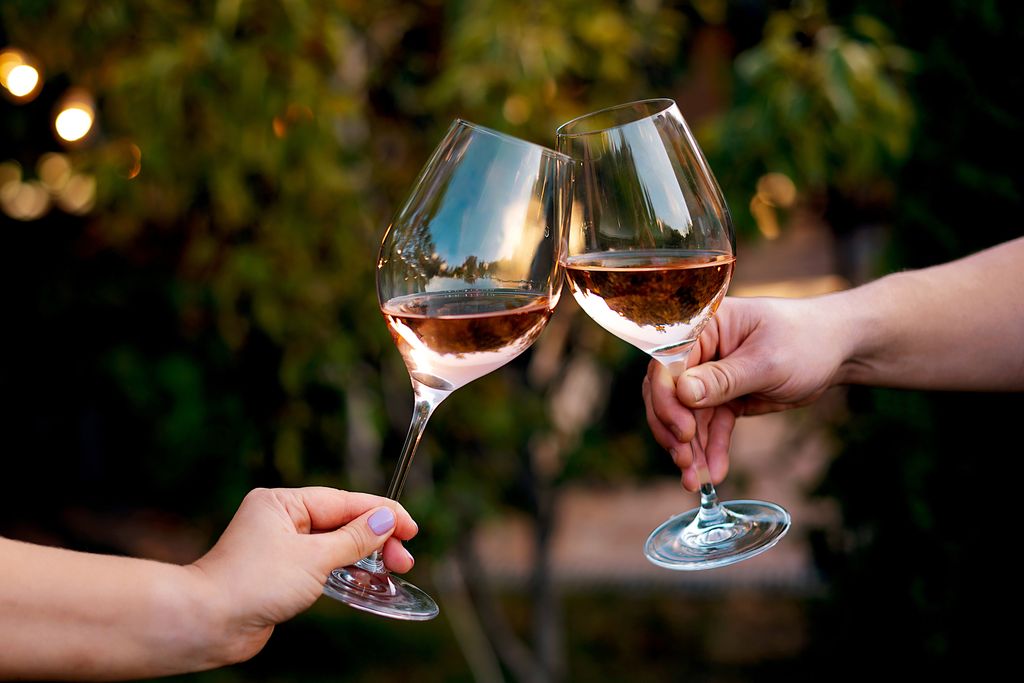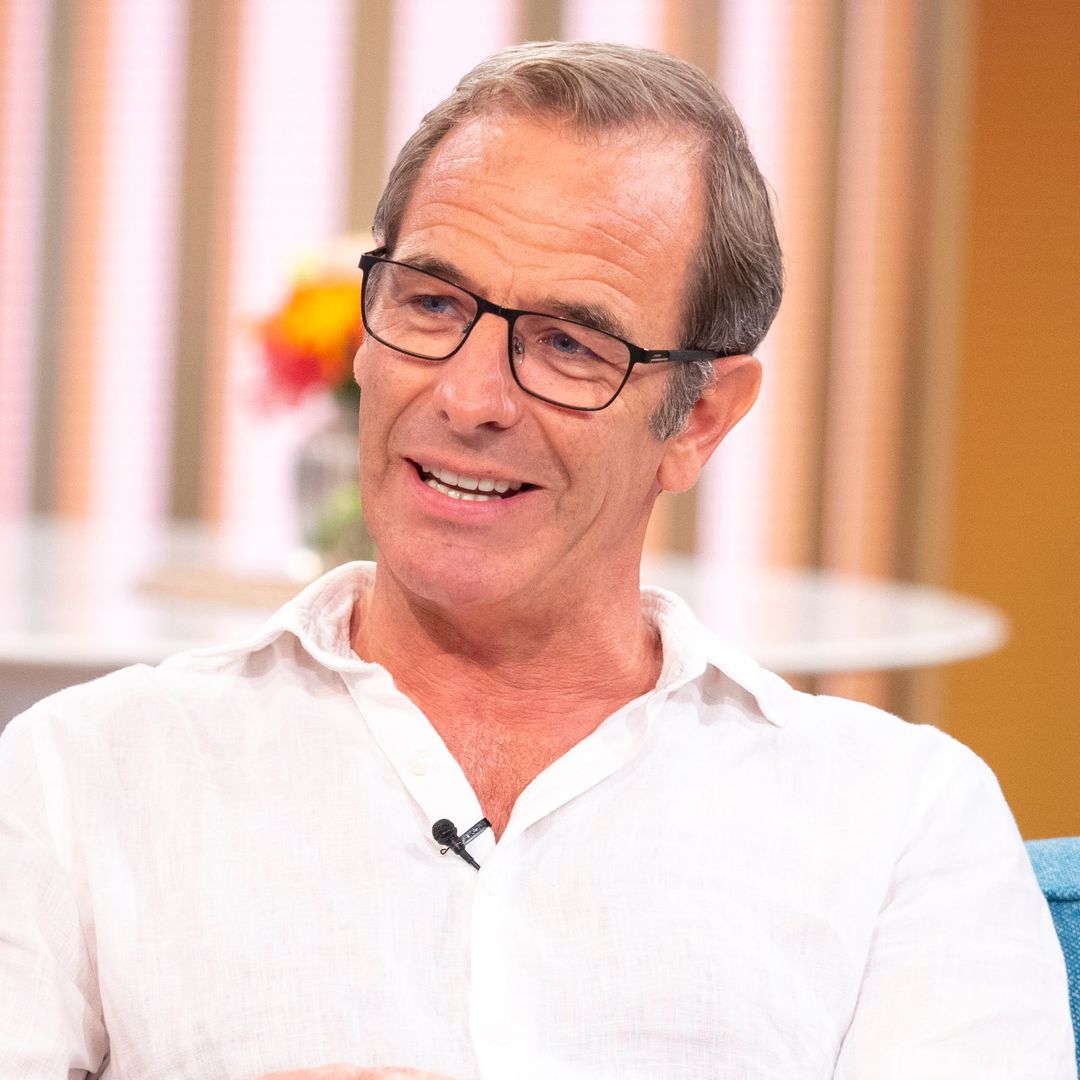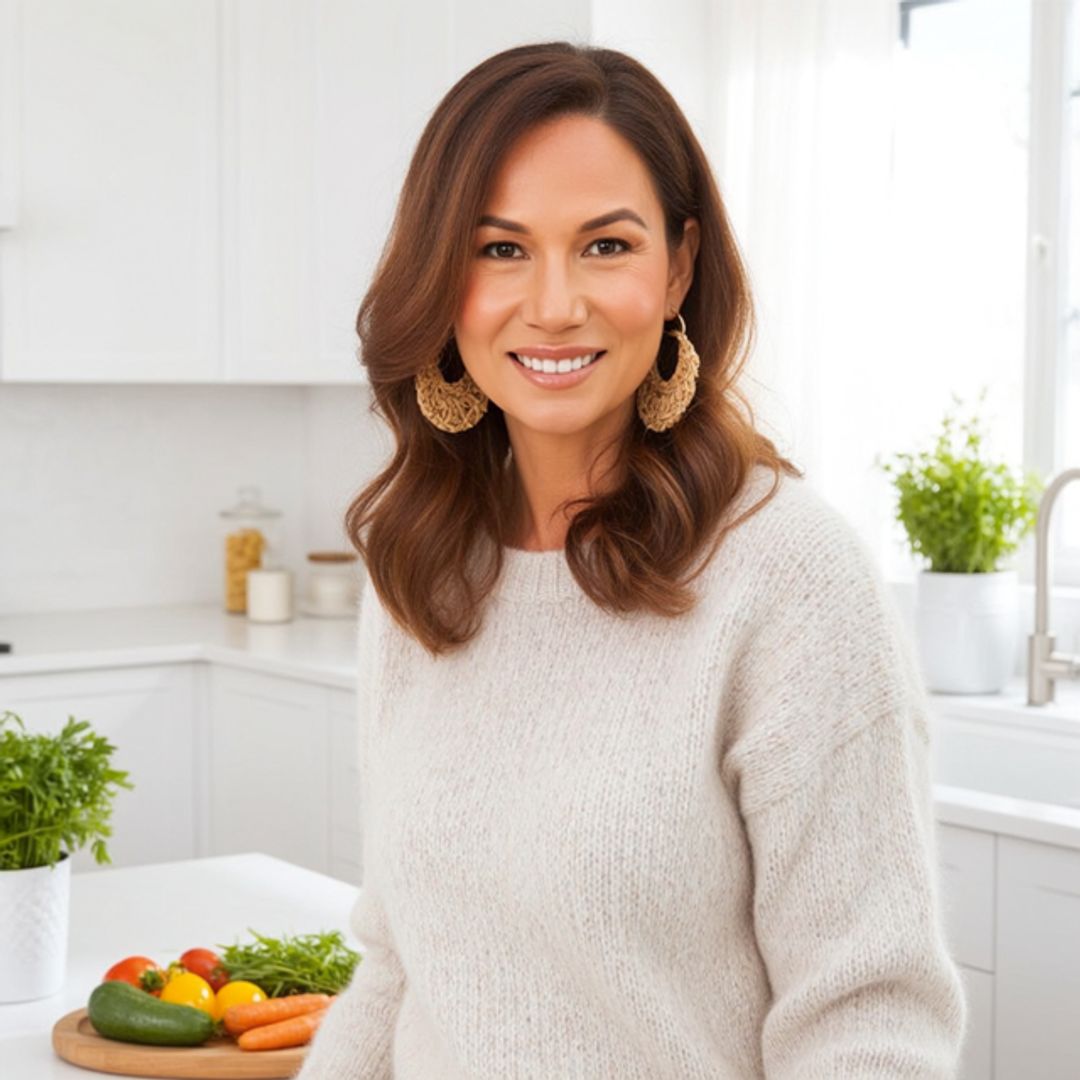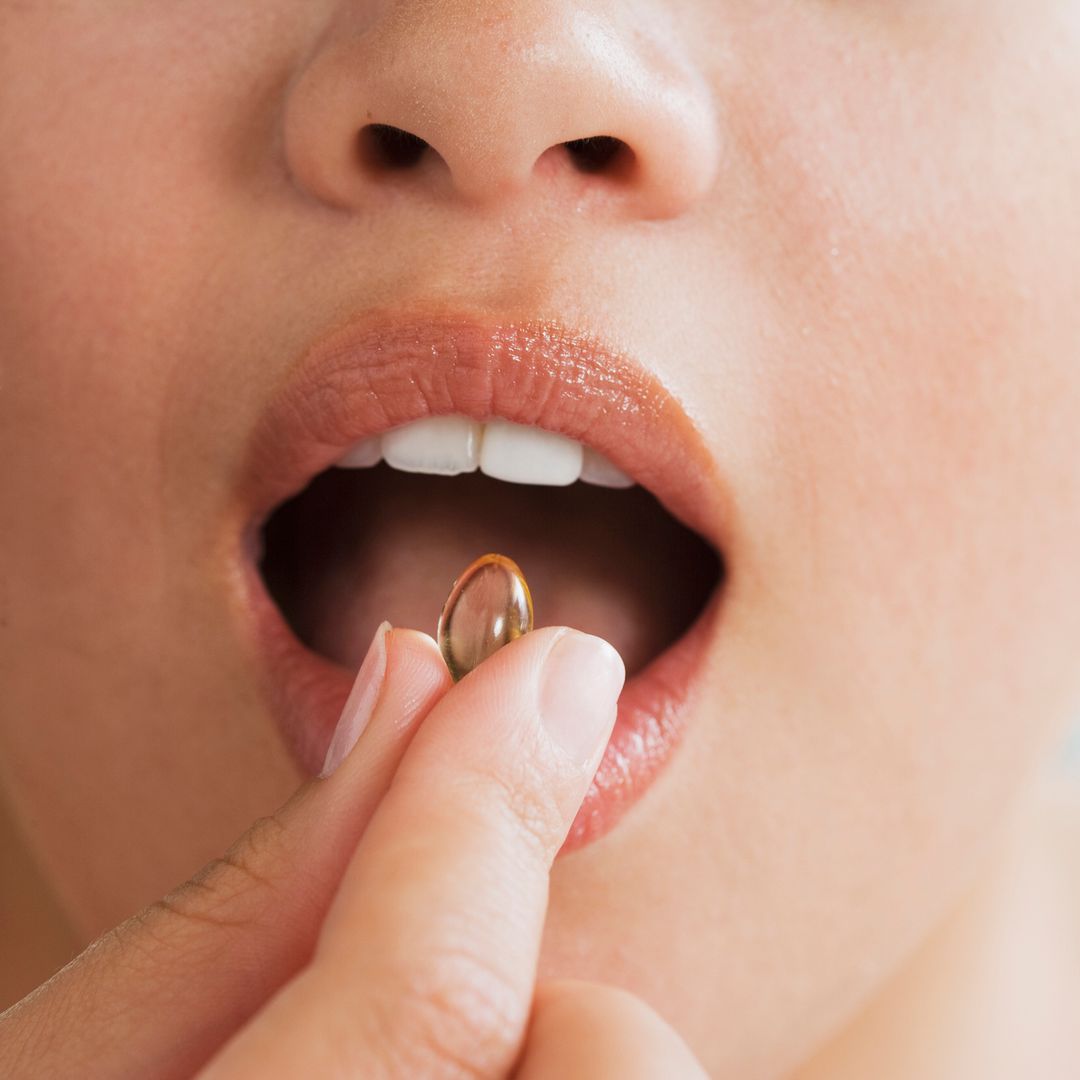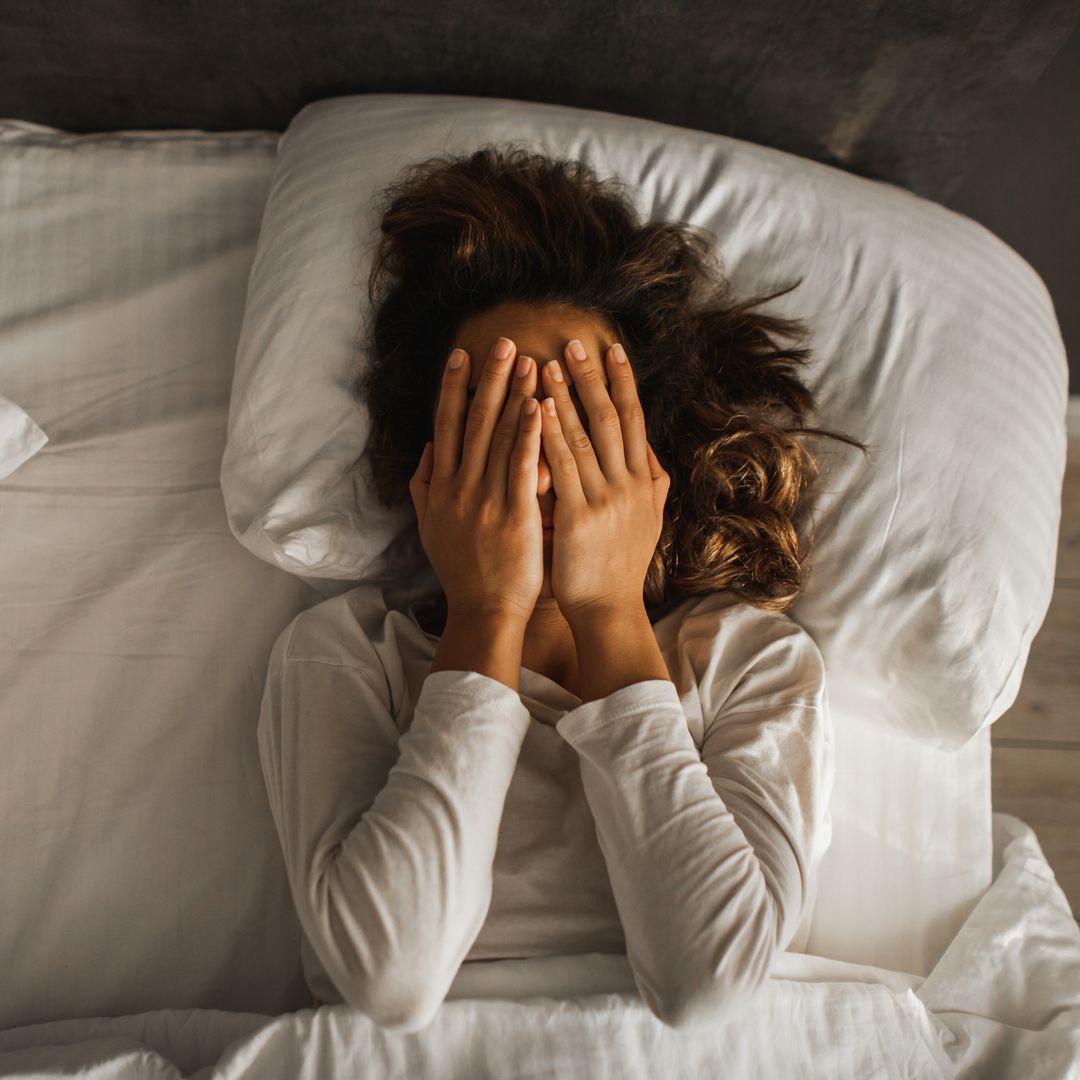How many times after a night of drinking have you woken up at 2am, plagued with anxiety?
That was a feeling Christy Osborne, 40, was all too familiar with. "After drinking, I would always wake up around 3AM, desperate for the bathroom and needing to chug whatever water that I could find nearby.
"I would then lie in bed, eyes wide open and start panicking about why I felt so rotten. I'd ask myself, 'How many glasses did I actually have? Did I finish the bottle? Why do I have to do this to myself all the time? Why can’t I control myself? I should have just had two glasses. Why can’t I stick to two glasses?'
"The hangxiety would then turn to all the things that I had to do the following day. I’d usually reach over and look at my calendar on my phone and start wondering what I had on that day that I could cancel."
While we might fall asleep quickly after we've been drinking, Christy notes that it's not good quality sleep.
"Alcohol disrupts the sleep cycle, meaning that we spend less time in deep sleep. It is also diuretic, which means the body gets dehydrated more overnight," she explains.
"My sleep was littered with 'mini-awakenings' that I couldn't remember but left me feeling exhausted and unrefreshed the next morning," she continues.
As to why alcohol is such a nightmare when it comes to sleeping well, Christy explains: "Alcohol is a depressant, and this helps you to sleep for the first five hours or so, but during the night, your brain reacts to the alcohol by releasing a stimulant chemical, which is why you wake up in the middle of the night, beating yourself up for drinking too much again and unable to get back to sleep.
Making a change
"I woke up one day exhausted. I knew I wanted more from my life," says Christy. "I knew that alcohol was the first place to start for better health, more energy, a clear head and for better relationships with the people I love the most."
Christy vowed to give up drinking, and saw herself sleeping better than ever. "In the immediate days after I stopped drinking, I slept like a dead person. I realised my body was exhausted after decades of not getting enough deep sleep.
RELATED: 5 surprising ways quitting drinking made me happier
"After that my sleep went a little haywire. I always tell my clients to remember that getting into a proper sleep cycle takes a bit of time. After all, if we haven’t been sleeping for decades, it takes a while to readjust. Just like when you travel internationally, it can take up to a week to recover from jet lag- it can take some tie for our bodies to reset."
Now sober for four years, Christy works as a sobriety coach, helping people quit alcohol. Here she shares her advice for improving your sleep through quitting alcohol.
How to quit drinking for better, deeper sleep
Progress not perfection
"Remember that progress, not perfection, should be your focus. Even if you're not quitting entirely, drinking less is perfectly okay. It can be a valuable step towards a healthier relationship with alcohol.
READ: I quit alcohol 3 months ago - and the results were not what I expected
Work out why you drink
"Ask yourself a crucial question: What job are you giving to alcohol? We all have reasons behind why we drink – it might be a bridge to connection, a source of fun, a tool for relaxation, a reward, or even a coping mechanism. The list is endless. But by gaining clarity on why you're drinking, you can determine if alcohol is genuinely serving its intended purpose or not.
"For instance, if you use alcohol to connect with others, get curious about whether it's genuinely enhancing those connections. Is that glass of wine helping you engage with your friend, or is it shifting your focus to the alcohol itself?
"Remember that alcohol can impair memory-making, so you might not even remember the meaningful conversations. Suppose you drink to relax but find yourself facing anxiety the next day (due to alcohol's impact on adrenaline and cortisol). In that case, it's worth questioning if alcohol is doing the job you're asking of it.
INSPIRATION: Ask a life coach: How can I cut back on drinking?
Be open-minded
"The key here is to approach cutting back with grace and an open mind. Avoid judgment and, instead, embrace curiosity. Challenge your assumptions about alcohol and its effects. If you discover that alcohol isn't serving your needs, you'll naturally drink less and more mindfully."
Christy Osborne is a certified sobriety coach and founder of Love Life Sober, which helps empower women across the UK and US to get back in control of their relationship with alcohol.
